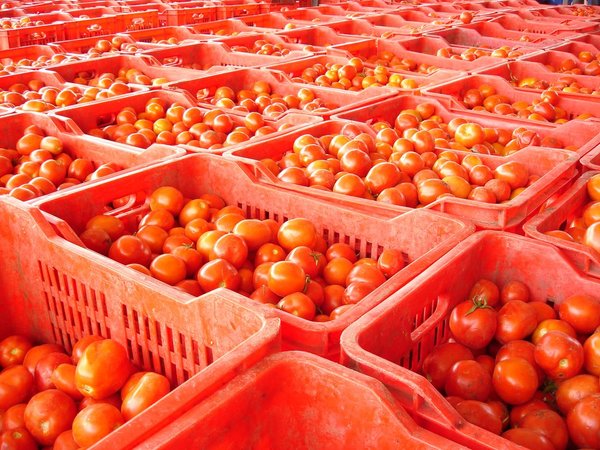 Read this article in French
Read this article in French- Share this article
- Subscribe to our newsletter
Promoting innovative solutions against post-harvest losses
The negative consequences of post-harvest losses (PHL) are manifold: The deterioration in both quantity and quality of food commodities from the time they are harvested until their final consumption significantly affects food security. At the same time, food losses also equate to a loss of the resources that went into their production and that are scare anyway, such as water, land or energy.
Taking on a positive perspective, however, there is great potential in the reduction of PHL: Their prevention offers a chance to increase the availability of food and raise the income of farmers without requiring additional land and resources. To achieve this, innovations are the key. This is where the new initiative on the reduction of PHL through innovation platforms and hybrid trade fair formats comes in. The initiative, funded by the German Federal Ministry for Economic Cooperation and Development (BMZ), also seeks to contribute to the progress of Sustainable Development Goals in Côte d'Ivoire and India.
A hybrid approach to a global challenge
A global challenge requires a comprehensive solution. This is why the project of the Deutsche Gesellschaft für internationale Zusammenarbeit (GIZ) GmbH Agricultural Policy and Innovation Fund opted for an implementation of the initiative in two countries with two complementary components: One is an exhibition that will be shown at the trade fair CII Agro Tech India and the Salon international de l’agriculture et des ressources animales d’Abidjan (SARA) in Côte d'Ivoire in 2022. In it, multimedia information material will showcase innovation opportunities at specific steps of post-harvest treatment in selected value chains.
Moreover, relevant start-ups will have the possibility to present their innovative solutions that contribute to the reduction of PHL. Additional workshops and discussion rounds will furthermore promote an active exchange among visitors of the trade fair and renowned experts.
The second component, digital platforms in both countries, serves to prepare and follow up the trade fair appearance, bringing together different actors in the sector, allowing them to participate virtually in the trade fair and to establish new partnerships. The compiled extensive knowledge about PHL will be disseminated online beyond the events and will thus be made accessible to the public over the long term.
Successful launch of virtual exchanges – trade fair appearances at the end of the year
While the concept is the same for both countries and the potential for a fruitful South-South exchange will be leveraged, the implementation will nevertheless be tailored to the local context. Early in 2022, the first country-specific activities have already taken place. For Côte d’Ivoire, DLG International GmbH, as the implementing partner of GIZ, invited about 30 local and international experts to a virtual exchange, that shed light on the significance of PHL, which reach high levels in some of the value chains in the country: They can be up to 30 per cent for cassava, 40 per cent for mango, and 30 per cent for vegetables – unsurprisingly, these are the value chains that were selected by the experts as those that the joint efforts should especially focus on.
In India, the activities, which are implemented by the Indo-German Chamber of Commerce (IGCC), are already in full swing. While the value chains of apple, tomato, onion and potato had been selected at the end of 2021, it was now time to publicly unveil the initiative to a broader audience at the beginning of March. This included the announcement of the slogan for the initiative “Protection of Crops, Protection of the Future”. An ambitious goal for which many actors must join forces. The willingness to do so is already evident in the attention that the virtual events in both countries have received so far.
Two best practice examples from Indian start-ups were presented during the kick-off event: The biomass-powered refrigeration unit GreenCHILL from New Leaf Dynamic Technologies and the nature-inspired active packaging solution from GreenPod Labs have shown that effective solutions exist. Now this initiative is setting out to give many more innovative approaches a platform – both virtually and in presence at the trade fairs in November.
Author: Marie Sophie Roeder, Deutsche Gesellschaft für Internationale Zusammenarbeit (GIZ) GmbH, Bonn/Eschborn, Germany, Contact: Marie.roeder@giz.de
More information:
Link to global project Agricultural Policy and Innovation Fund
Awareness Video on PHL in India
Virtual Kick Off Event: Supporting India’s Agriculture Sector against Post Harvest Losses





Add a comment
Be the First to Comment